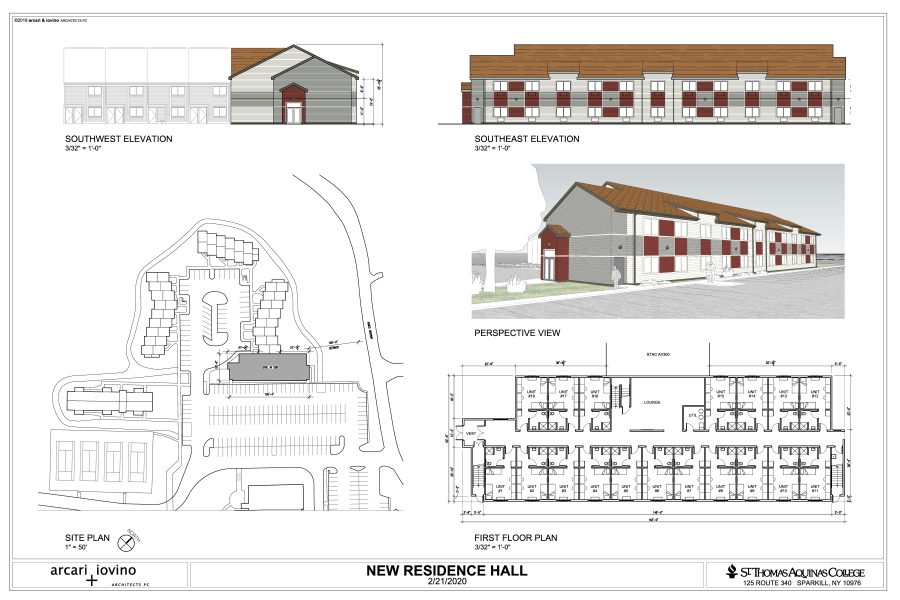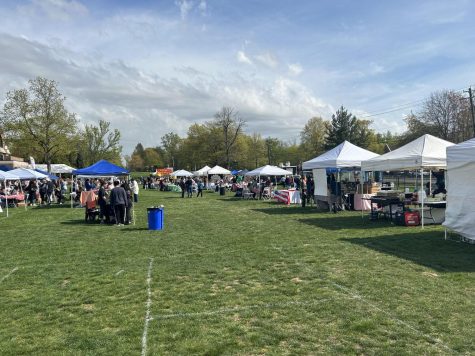Aquinas Village to be renamed, will feature new residence hall
March 3, 2020
Some big changes are coming to the familiar zigzagging buildings surrounding the parking lot outside Spellman Hall, which many upperclassmen at STAC call home for the semester. In an official announcement from school Vice President Joseph Donini, it was stated that the residences of Aquinas Village are to be renamed to Fitzpatrick Village, in honor of STAC’s President Dr. Margaret Mary Fitzpatrick.
Dr. Fitzpatrick is credited for much of the school’s growth and success during her tenure. Some of her accomplishments include reorganizing the college into three separate schools based on different fields of study, introducing technology for academic as well as administrative applications at the college, overseeing the construction of many buildings integral to STAC today, and much more.
Dr. Fitzpatrick announced last year she would be retiring from her long-held role effective June 30, 2020. To honor her service of over 25 years to the college, it was decided that Aquinas Village will now hold her namesake. In addition to this, it was announced that a new residence hall would be added to Fitzpatrick Village.
The building will stand out from the previous “townhouse” style of dormitory, as more of a traditional residence hall. It will have a main entrance and hallways leading into two-bed rooms, with every room containing a bathroom rather than multiple dorms sharing a bathroom.
While there is limited common space in the actual dorms, each floor will have a common lounge. To avoid noise pollution for students living in the residence hall after it is complete, the flooring will have a sound-proof backing, which will be assisted by a 14-inch gap of insulation between the two floors; the exterior walls will also have insulation.
The building will join the 300 Building on the side directly bordering Parking Lot F, or the Library Lot, to form a T-shape.
The construction is going to lead to some disruptions in Lot F, with part of the lot fenced off; the two parking rows closest to the new building and the entrance to the lot from Kings Highway will be closed, and the central lot of Fitzpatrick Village will have two-way traffic along with some restricted parking.
The last time The Thoma covered this story, there were concerns from students over the disruptions the construction could cause, including the noise factor.
Vice President Joseph Donini recently addressed these concerns, admitting “any time there’s construction there will be, what we hope, [only] minor inconveniences,” but stating there would be no work taking place in the evening or on weekends.
In addition, he clarified that the project will be a panelized construction, meaning all the walls will be built elsewhere and arrive at the site complete. Finally, the digging of the foundations near Building 300 will take place over spring break. While Mr. Donini stated he obviously cannot guarantee that there will be no noise, “we are taking these things into consideration… to minimize the impact on the students.”
In terms of parking concerns, he stated that while there would be more residents in Lot F with 72 new beds in the area, there are enough parking spots nearby to handle this.
Mr. Donini also revealed further details about how the school actually came to the decision of building a new residence hall. While there have been no major increases in enrollment in recent years, “the number of housing students has been strong, and that was really the indicator of what we felt was needed,” he said.
Furthermore, alleviating the existing quad and triple dorms to allow more doubles was another motivating factor. According to a housing survey sent out by Mr. Norman Huling, over 75% of the resident students who replied do not want to reside in quads.
Mr. Donini asserted that “enrollment figures may allow us or prevent us from reducing those quads,” though, realistically, filling the building with 72 new resident students “is not going to happen overnight.” For those who do not prefer double rooms, he affirmed that there will still be a range of offerings in terms of triples, doubles, and singles. The residence hall will be part of the regular housing selection process, and will not be dedicated to any certain type of students.
“We’re excited about it, and we think it’s going to have an impact on the quality of life of the resident students, as well as just giving a different living option to students,” Mr. Donini said.







